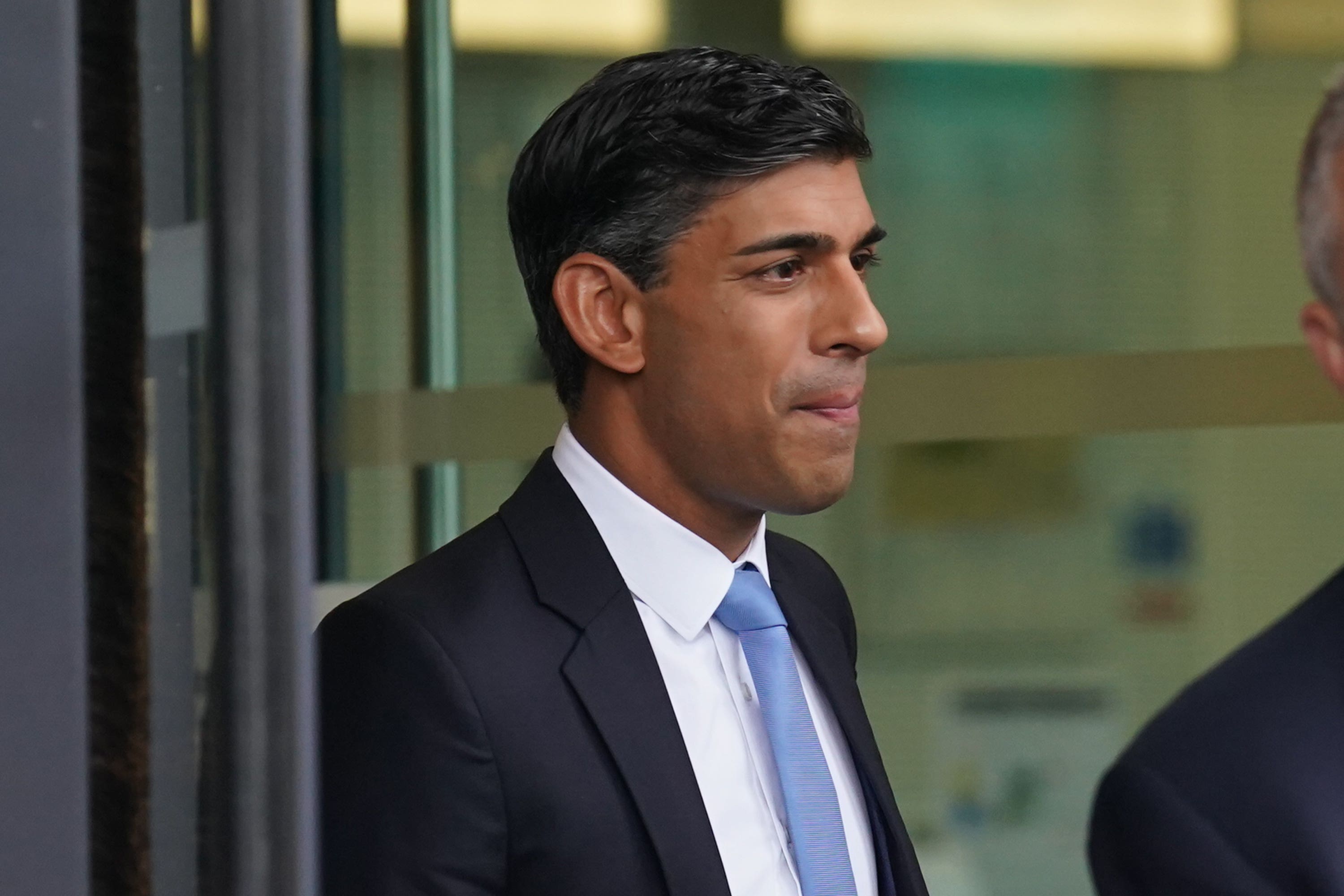Sunak resists calls to announce pre-election tax giveaway to boost Tory hopes
The Prime Minister insisted his approach of prioritising measures to tackle inflation would help hard-pressed households.

Your support helps us to tell the story
From reproductive rights to climate change to Big Tech, The Independent is on the ground when the story is developing. Whether it's investigating the financials of Elon Musk's pro-Trump PAC or producing our latest documentary, 'The A Word', which shines a light on the American women fighting for reproductive rights, we know how important it is to parse out the facts from the messaging.
At such a critical moment in US history, we need reporters on the ground. Your donation allows us to keep sending journalists to speak to both sides of the story.
The Independent is trusted by Americans across the entire political spectrum. And unlike many other quality news outlets, we choose not to lock Americans out of our reporting and analysis with paywalls. We believe quality journalism should be available to everyone, paid for by those who can afford it.
Your support makes all the difference.Rishi Sunak is under Conservative pressure to cut taxes, with even members of his Cabinet publicly calling for pre-election giveaways.
As the Tories gather in Manchester for the party’s conference, the Prime Minister resisted demands to lower the tax burden, insisting he is right to instead prioritise measures to cut inflation.
But Levelling Up Secretary Michael Gove said he wants cuts announced before the election to ease the tax burden on working households.
Mr Gove told Sunday Morning With Trever Phillips on Sky News: “Of course it is the case that taxes are higher than we would want them to be. That is a fact.
“It’s one that I believe is due principally to the pandemic but also to an extent to the war in Ukraine.
“I would like to see the tax burden reduced before the next election.”
Although Jeremy Hunt has played down the prospect of tax cuts in November’s Autumn Statement, the Chancellor is likely to have a Budget before the next election which is expected to be held in 2024.
Mr Gove suggested the focus should be on cutting taxes on work such as income tax or national insurance – rather than to inheritance tax as is being reportedly considered.
“We should incentivise people to work harder, we should make sure they are better rewarded for the enterprise, the effort, the endeavour that they put in,” he said.
But Mr Sunak refused to give the commitment to a pre-election tax cut sought by Mr Gove.
He told the BBC’s Sunday With Laura Kuenssberg: “The best tax cut we can give people is to halve inflation.”
He said that as a Conservative, “I want to cut taxes”, but he defended his prioritisation of inflation-reducing measures.
“Change may be difficult, but I believe the country wants change and I’m going to do things differently to bring about that change,” he said.
“You saw that last summer (during the Conservative leadership contest) when it came to this question, I said the most important priority we faced was to bring inflation down.
“It’s inflation that’s putting the prices of things up, inflation that’s making people feel poorer, the quicker we bring inflation down, the better it is, and that’s why it’s the right priority, and we are making good progress.”
Mr Sunak also refused to set out a decision on whether the HS2 rail project will ever reach Manchester, despite his party’s conference slogan being “Long term decisions for a brighter future”.
The Prime Minister declined to comment on “speculation” as Theresa May followed Boris Johnson and David Cameron to become the latest Conservative former premier to warn against axing the Northern leg.
Andy Street, the Tory mayor of the West Midlands, is among the critics of HS2 not being extended past Birmingham, while London Mayor Sadiq Khan warned it could make the UK a “laughing stock” as it may never reach central London, instead stopping in a western suburb.
But Mr Sunak faced down his critics, telling Kuenssberg: “I’d completely reject that.”
The Prime Minister was instead keen to discuss his plans to combat what he terms as a “war on motorists” by issuing stronger guidance on 20mph zones and low traffic neighbourhoods.
He suggested to the BBC that local councils could still introduce low-speed areas if the move commands local “consent” and follows Government guidance.
The Conservatives have long trailed Labour in the polls by around 18 percentage points, but Tory members may be buoyed by an Opinion survey indicating a narrowing of the gap.
The poll of nearly 3,000 adults put the Tories 10 points behind – the closest since Mr Sunak entered Downing Street nearly a year ago – after he set out plans to water down environmental policies.
But the Prime Minister was dealt a blow on the eve of conference when Richard Walker, the executive chairman of Iceland supermarket, revealed he had quit the party.
Mr Walker, who had held ambitions of becoming a Tory MP, told BBC News: “It has become clear to me over recent months that the Conservative Party are drifting out of touch with the needs of business, with the environment, and also the everyday people that my business touches and serves.”